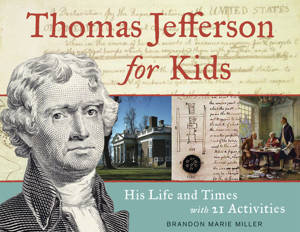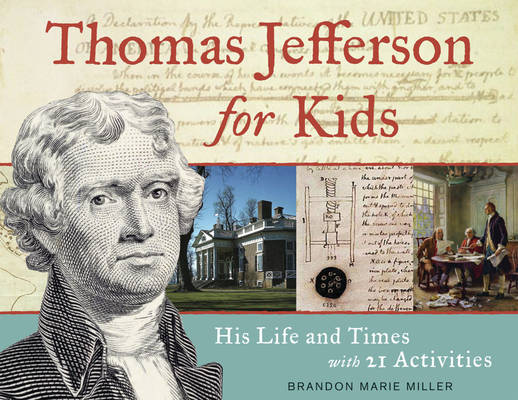
- Afhalen na 1 uur in een winkel met voorraad
- Gratis thuislevering in België vanaf € 30
- Ruim aanbod met 7 miljoen producten
- Afhalen na 1 uur in een winkel met voorraad
- Gratis thuislevering in België vanaf € 30
- Ruim aanbod met 7 miljoen producten
Zoeken
€ 20,95
+ 41 punten
Omschrijving
An architect, statesman, farmer, and inventor, Thomas Jefferson had few equals among this nation's founders. Left fatherless at a young age, he was a hardworking scholar who came into his own as a lawyer, landowner, and county leader. Elected to the Virginia Assembly in 1769, Jefferson became an eloquent critic of the colonial policies of Great Britain and King George III. His talents made him the perfect candidate to write the Declaration of Independence, which set the United States apart in a world ruled by monarchs. Jefferson, however, was not without his contradictions. His quill penned the immortal phrase "all men are created equal," but during his lifetime he owned 600 slaves. And though he sought elected office, he was sensitive to criticism and often wished to escape his public role and return to his Monticello estate. Author Brandon Marie Miller captures the complexity of this talented leader through his original writings and hands-on activities from the colonial era
Specificaties
Betrokkenen
- Auteur(s):
- Uitgeverij:
Inhoud
- Aantal bladzijden:
- 144
- Taal:
- Engels
- Reeks:
Eigenschappen
- Productcode (EAN):
- 9781569763483
- Verschijningsdatum:
- 1/09/2011
- Uitvoering:
- Paperback
- Formaat:
- Trade paperback (VS)
- Afmetingen:
- 215 mm x 282 mm
- Gewicht:
- 485 g

Alleen bij Standaard Boekhandel
+ 41 punten op je klantenkaart van Standaard Boekhandel
Beoordelingen
We publiceren alleen reviews die voldoen aan de voorwaarden voor reviews. Bekijk onze voorwaarden voor reviews.








